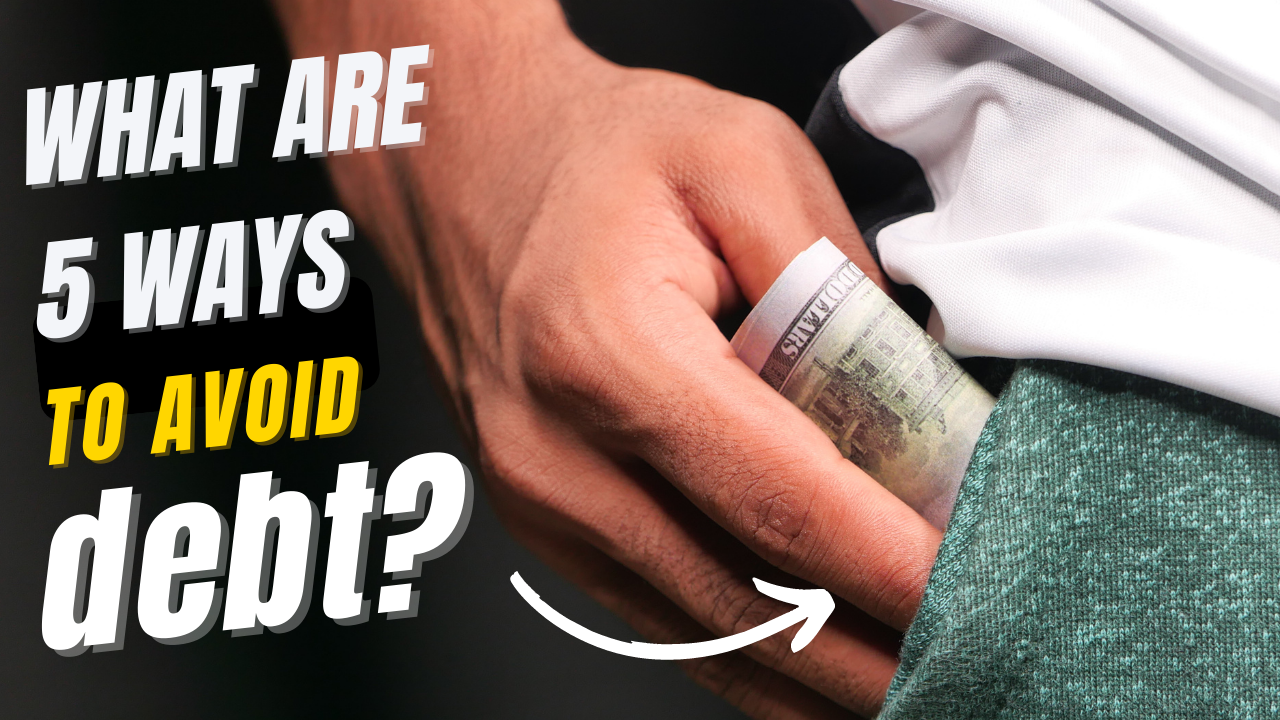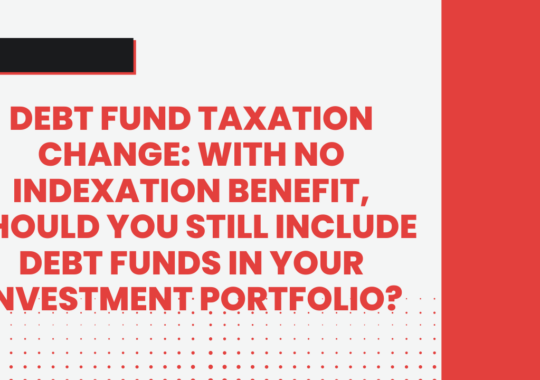Do you feel exhausted by the constant struggle to make ends meet, wondering how you’ll manage your bills or unforeseen expenses? Is credit card debt or other forms of loans mounting up and becoming a concern? If this sounds familiar, take comfort in the fact that you’re not alone. Countless individuals worldwide are dealing with debt and its repercussions, from anxiety and stress to financial insecurity and the possibility of bankruptcy.
Fortunately, there are effective measures you can take to evade debt and take back command of your finances. By being proactive in managing your finances intelligently and avoiding unnecessary expenses, you can lower the chances of being trapped in debt and establish a more secure financial future for you and your loved ones. This article will delve into five vital approaches to dodge debt, such as creating practical budgets and developing emergency savings, and provide practical suggestions and resources to assist you in implementing them.

If you’re starting to take charge of your financial journey or seeking to bounce back from a tough financial period, don’t miss out on discovering the five methods to avoid debt and achieve more substantial financial independence and security.
Continue reading to learn more.
Create and stick to a budget
- Having a budget is an essential instrument to handle your finances and evade debt. It enables you to have a clear view of where your money is going and make wise decisions about how to utilize and preserve it.
- When creating a budget, begin by enumerating all the sources of your income and expenses. After that, distinguish between necessary expenditures such as housing, food, and utilities, and discretionary ones like entertainment or travel, and prioritize accordingly.
- Once you’ve created your budget, be sure to track your spending regularly to ensure you’re staying on track. Consider using budgeting apps or software to make this process easier.
Get to know the 5 Steps to Budget Your Way Out of Credit Card Debt
Build an emergency fund
- Unexpected expenses can quickly lead to debt if you don’t have savings to fall back on. That’s why it’s important to build an emergency fund that can cover at least three to six months’ worth of living expenses.
- To build your emergency fund, start by setting aside a small amount of money each month, even if it’s just 1500 or 5000. Gradually increase your savings as your income and budget allow.
- Keep your emergency fund in a separate account from your other savings and only use it for true emergencies, such as medical bills or unexpected home repairs.
Tap here to know How To Save for an Emergency
Avoid high-interest debt
- High-interest debt, such as credit card debt or payday loans, can quickly spiral out of control and lead to financial ruin. Avoid these types of debt whenever possible.
- If you do need to borrow money, look for lower-interest options such as personal loans or home equity loans. Be sure to shop around and compare rates and terms before committing to any loan.
- If you already have high-interest debt, make a plan to pay it off as quickly as possible. Consider using a debt snowball or debt avalanche method to prioritize your payments and reduce your interest costs.
Tap here to know Why Becoming Debt-Free Should Be Your New Priority
Negotiate bills and expenses
- Many bills and expenses, such as cable or internet bills, can be negotiated or reduced if you’re willing to ask. Call your service providers and ask if they can offer you a better rate or package.
- You can also negotiate medical bills or other debts if you’re struggling to pay them. Be honest about your financial situation and ask if you can set up a payment plan or negotiate a settlement.
Read about the Top 5 Remote Work Tools to Increase Productivity and Reduce Waste and Expenses
Live below your means
- Ultimately, one of the most effective ways to avoid debt is to live below your means. Signifying that spending less than you earn and preventing unessential expenses.
- Look for ways to cut back on your spending, such as cooking at home instead of eating out, buying used instead of new, or finding free entertainment options.
- Remember, living below your means doesn’t have to be a sacrifice. By prioritizing what’s important to you and focusing on experiences rather than material possessions, you can create a more fulfilling and financially secure life.
FAQs
What are some common types of debt?
Common types of debt include credit card debt, student loans, personal loans, auto loans, and mortgages.
How much should I aim to save in my emergency fund?
Financial experts recommend having at least three to six months’ worth of living expenses saved in your emergency fund.
How can I avoid high-interest debt?
You can avoid high-interest debt by living below your means, building an emergency fund, and negotiating bills and expenses. If you do need to borrow money, look for lower-interest options such as personal loans or home equity loans.
What is a debt snowball method?
The debt snowball method is a strategy for paying off debt by focusing on your smallest debts first and gradually working your way up to your larger debts. This method can help you build momentum and stay motivated as you pay off your debts.
What is a debt avalanche method?
By concentrating on debts with the highest interest rates initially, the debt avalanche method is a technique for paying off debt. This approach has the potential to reduce interest expenses and hasten the repayment of debts.
How can I negotiate bills and expenses?
To negotiate bills and expenses, start by calling your service providers and asking if they can offer you a better rate or package. You can also negotiate medical bills or other debts by being honest about your financial situation and asking if you can set up a payment plan or negotiate a settlement.
How can I live below my means?
You can live below your means by cutting back on your spending, such as cooking at home instead of eating out, buying used instead of new, or finding free entertainment options. Focus on what’s important to you and prioritize experiences rather than material possessions.
How can I track my spending?
There are two primary methods for tracking your spending: manually keeping receipts and recording expenses in a notebook or spreadsheet, or utilizing budgeting apps or software to streamline the process.
What if I’m already in debt?
If you’re already in debt, it’s important to make a plan to pay it off as quickly as possible. Consider using a debt snowball or debt avalanche method to prioritize your payments and reduce your interest costs. You can also seek help from credit counseling services or consider debt consolidation loans.
What should I do if I can’t pay my bills?
If you find it challenging to settle your bills, it’s crucial not to overlook the issue. Instead, get in touch with your creditors and explain your situation to them. They may be able to extend a payment plan or hardship program to you as a possible solution.
What are some common mistakes people make when trying to avoid debt?
Common mistakes include overspending, not budgeting properly, not building an emergency fund, taking on too much high-interest debt, and not negotiating bills and expenses.
Conclusion
Well done on finishing our guide on avoiding debt! You should now possess a thorough understanding of the primary strategies that you can adopt to manage your finances astutely, minimize your spending, and cultivate a more stable financial outlook.
Remember, avoiding debt isn’t just about saying “no” to things you can’t afford. It’s about taking control of your money and making smart decisions that align with your values and priorities. By creating a budget, building an emergency fund, avoiding high-interest debt, negotiating bills and expenses, and living below your means, you can create a financial plan that works for you and your family.
Undoubtedly, it’s crucial to acknowledge that each individual’s financial situation is distinct. What may be effective for one person may not be applicable for another, and unexpected situations may arise, making it challenging to evade debt. If you encounter difficulties with debt, keep in mind that there are various resources at your disposal, such as credit counseling services and debt consolidation loans.
Maintaining your attention on your objectives and continuously progressing is paramount. You can develop the abilities and routines necessary to attain enduring financial stability and security by taking small daily measures to enhance your financial well-being.
So, whether you’re just starting out on your financial journey or looking to improve your current situation, we hope these tips have been helpful to you. Remember, avoiding debt is a journey, not a destination, and there’s always room to learn and grow. So take the first step today and start building the financial future you deserve!



